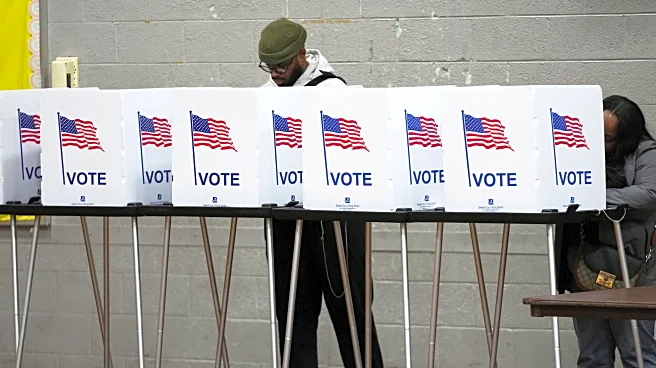What's Happening?
Indonesia is experiencing significant challenges during President Prabowo Subianto's first year in office, marked by widespread food poisoning incidents and public protests. The government's free school
meals program, intended to combat child malnutrition and stimulate the economy, has led to over 9,000 children falling ill due to food poisoning. This has raised concerns about the program's effectiveness and its strain on public resources. Additionally, protests erupted in August over rising living costs, corruption, and inequality, resulting in the government rolling back perks for politicians. These issues highlight broader economic challenges, including slowing global demand and competition from regional neighbors.
Why It's Important?
The situation in Indonesia is crucial as it underscores the difficulties faced by emerging economies in balancing ambitious social programs with economic realities. The food poisoning incidents and protests reflect public dissatisfaction with government priorities, potentially impacting political stability. The economic challenges, including high tariffs on exports to the U.S. and competition from neighboring countries, could affect Indonesia's growth prospects. The government's ability to manage public finances and attract foreign investment is vital for achieving its ambitious growth targets, which are essential for job creation and economic development.
What's Next?
Indonesia is expected to continue navigating its economic challenges, with efforts to attract foreign investment and manage public spending. The government may need to reassess its social programs, such as the free school meals initiative, to ensure effectiveness and sustainability. Additionally, the upcoming trade deal with the U.S. and the recently signed agreement with the European Union could provide new opportunities for economic growth. However, careful management of these relationships and domestic policies will be crucial to achieving the desired outcomes.
Beyond the Headlines
The food poisoning incidents raise ethical concerns about the safety and oversight of government programs, highlighting the need for improved infrastructure and food safety standards. The protests reflect deeper societal issues, including inequality and corruption, which may require long-term policy solutions. The economic challenges also point to the need for Indonesia to diversify its economy and invest in sectors that can provide sustainable growth and employment opportunities.










